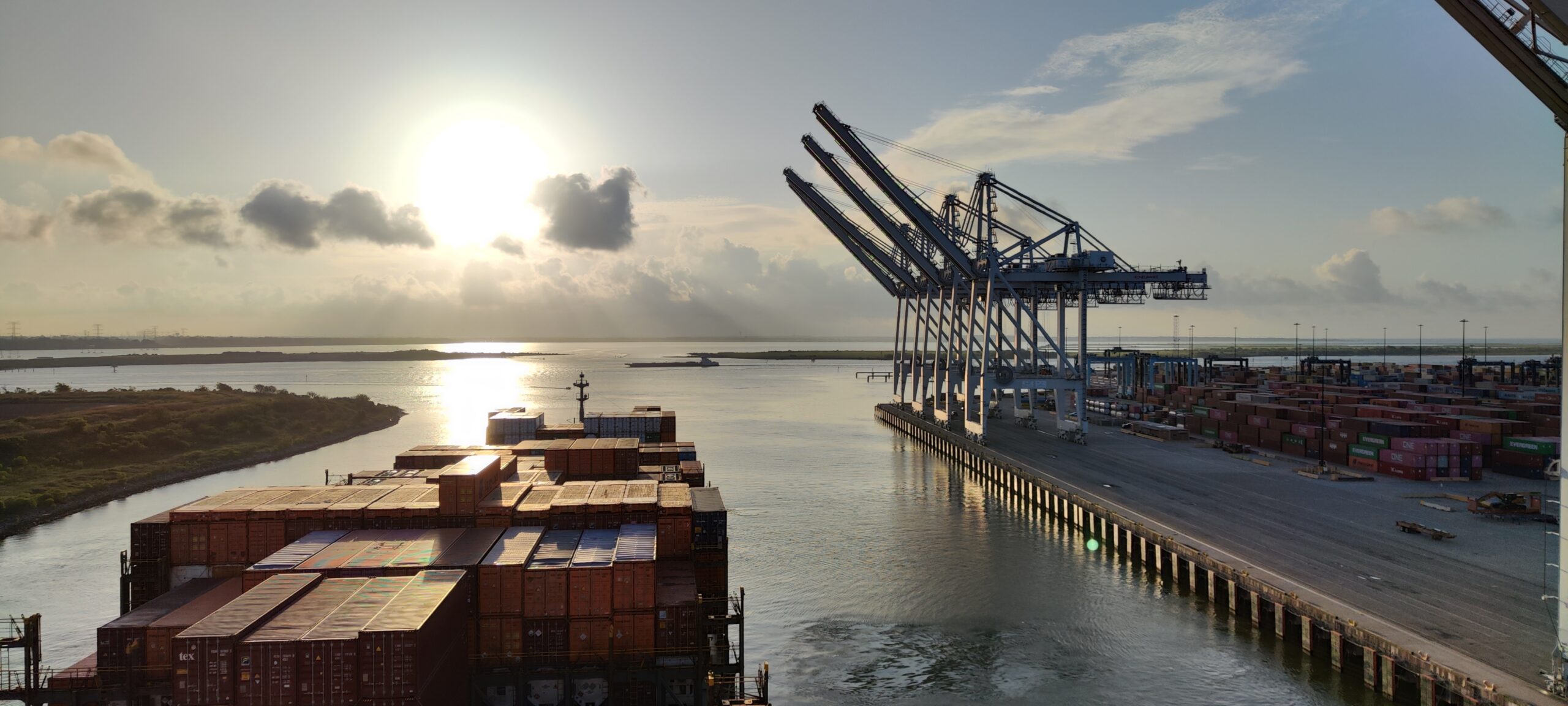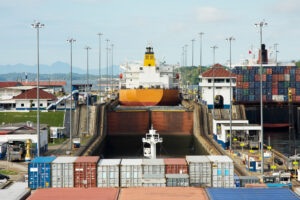Dockworkers working at America’s major ports on the Atlantic and Gulf Coasts have started industrial action, slowing or stopping America’s imports and exports. Ripple effects of strike action at ports on the US East and Gulf coasts will cause severe supply chain disruption into 2025, ocean and air freight intelligence platform Xeneta warns, with analysts urging government to intervene to avoid major economic fallout.
President Biden and Vice President Harris are closely monitoring any attempts by companies to opportunistically raise prices, including ocean shippers or others, during the labor dispute at East Coast and Gulf Coast ports, Transportation Secretary Pete Buttigieg said Tuesday.
Officials from the U.S. Department of Transportation met on Monday with businesses that will be affected by labor disputes to continue their ongoing dialogue about impacts to the supply chain and provide an update on the Administration’s efforts to encourage the parties to negotiate in good faith.
Transportation Secretary Pete Buttigieg calls on ocean carriers to withdraw surcharges: “Our administration is calling on ocean carriers to withdraw their surcharges. No one should exploit a disruption for profit, especially at a time when whole regions of the country are recovering from Hurricane Helene. The Federal Maritime Commission (FMC) has stated that it will use the authority the President called for and signed into law to ensure any fees assessed are legitimate and lawful.”
While the economic hit of the stoppage will depend on its length, analysts said a long strike could significantly drag on the US economy.
A lengthy strike could also pose political challenges. The dispute is worrying businesses that rely on ocean shipping to secure crucial imports.
It could become the country’s most disruptive work stoppage in decades, but it could have a flow on effect to trade around the world, according to experts.
Data from Xeneta, the ocean and air freight intelligence platform, shows average spot freight rates on the trade from the Far East to US East Coast spiked more than 300% between 1 December 2023 and early July this year.
Ocean supply chains have already been badly disrupted during 2024 due to conflict in the Red Sea, drought in the Panama Canal and Baltimore bridge collapse.
More than 40% of total containerized goods enter the US through ports on the East Coast and Gulf Coast, so the stakes could not be higher, according to Xeneta Chief Analyst Peter Sand.
Peter Sand said that there are ships on the ocean right now carrying billions of dollars of cargo heading to ports on the US East and Gulf Coast. “These ships cannot turn back, and they cannot realistically re-route to the US West Coast. Some may divert to ports in Canada or even Mexico East Coast, but the vast majority will simply wait outside affected ports until the workers return.
“The consequences will be severe, not only through congestion at US ports, but importantly these ships will be delayed returning to the Far East for the next voyage. A strike lasting just one week will impact schedules for ships leaving the Far East on voyages to the US in late December and throughout January,” Peter Sand explained.
At the stroke of midnight on Tuesday, October 1, International Longshoremen’s Association (ILA) President Harold J. President Harold J. Daggett joined thousands of fellow members outside the gates at Maher Terminal in Port Elizabeth, New Jersey and launched the first coastwide strike in the ILA in nearly a half century.
The ILA leader was joined by tens of thousands of ILA members setting up picket lines going up at all the major ports on the Atlantic and Gulf Coasts.
President Joe Biden on Tuesday 1 backed the ILA in their fight with employers, urging USMX, which represents a group of foreign-owned carriers, to come to the table and present a fair offer, as he said, to the workers of the International Longshoremen’s Association that ensures they are paid appropriately in line with their invaluable contributions.
“It is time for USMX to negotiate a fair contract with the longshoremen that reflects the substantial contribution they’ve been making to our economic comeback,” Biden said.
The ILA leader said Tuesday that USMX overlooks the fact that two-thirds of its members are constantly on call, with no guaranteed employment if no ships are being worked.
The United States Maritime Alliance (USMX) said it had made an offer of a nearly 50% wage increase. “Our current offer of a nearly 50% wage increase exceeds every other recent union settlement, while addressing inflation, and recognizing the ILA’s hard work to keep the global economy running,” the USMX says.
The ILA leader told reporters when the strike began early on Tuesday that the union has “rejected their so-called “nearly 50% wage increase” because it fails to address the demands of our members adequately.”
Our department has been engaging with partners across U.S. supply chains throughout recent months ahead of deadlines for port labor negotiations.
— Secretary Pete Buttigieg (@SecretaryPete) October 1, 2024
We've urged the parties in this negotiation to come to terms in good faith, fairly, and quickly. pic.twitter.com/Xqhlbnkr5P



